Imagine living in a home infested with pests – the constant buzzing, scuttling, and gnawing noises that echo through the hallways. It can be more than just an annoyance; pests have been known to have a significant impact on our mental health. Whether it’s the fear and anxiety they evoke, the stress of dealing with the damage they cause, or the unease of sharing your living space with unwanted guests, the presence of pests can take a toll on your overall well-being. In this article, we will explore the various ways in which pests can affect our mental health and discuss effective pest control solutions to help you regain peace of mind.
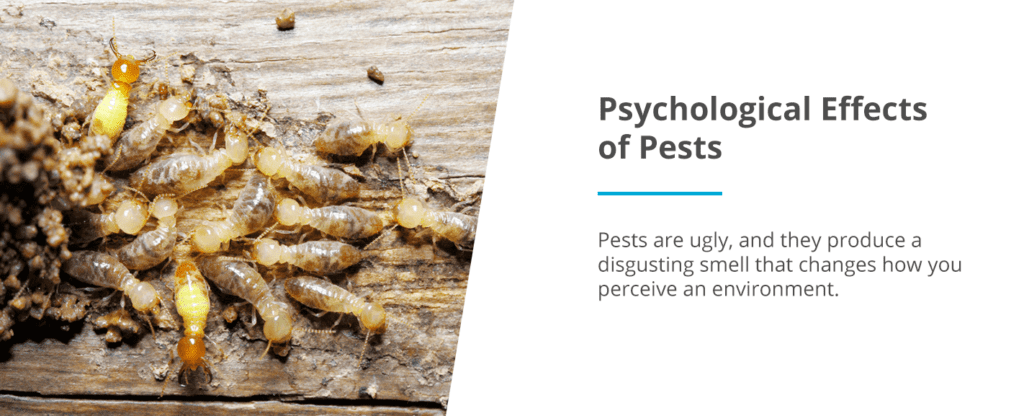
Negative Psychological Effects
Pests infestations can have a significant impact on your mental health, leading to various negative psychological effects. These effects can range from heightened anxiety and depression to increased stress levels.
Anxiety
Dealing with pests in your home can be a source of immense anxiety. The constant worry and fear of encountering pests or their effects can take a toll on your mental well-being. From the moment you spot a cockroach scurrying across your kitchen floor to the sound of mice scratching in your walls, anxiety can creep in and consume your thoughts. The uncertainty and unpredictability of pest infestations can leave you feeling constantly on edge, leading to restlessness and discomfort.
Depression
Living in an environment infested with pests can also contribute to feelings of depression. The constant presence of pests can create a sense of hopelessness and despair, making it difficult to find joy or motivation in daily life. The feelings of being overwhelmed and powerless can weigh heavily on your mental state, leaving you feeling isolated and demotivated.
Stress
Pest infestations can be a major source of stress. The constant battle against pests, whether it’s trying to eliminate them yourself or seeking professional help, can lead to heightened stress levels. The financial burden and disruption to your daily routine can add additional stressors to an already overwhelming situation. The ongoing effort to eradicate pests and prevent further infestations can become mentally exhausting, causing chronic stress that impacts your overall well-being.
Sleep Disruptions
Pest infestations can have a profound impact on your sleep, leading to various sleep disruptions that further exacerbate the negative effects on your mental health.
Insomnia
Pests crawling in your bed or making rustling noises in the walls can make it incredibly difficult to fall asleep. The fear and discomfort associated with pests can keep you awake, leading to insomnia. The constant anxiety and heightened awareness of their presence can make it challenging to relax and get the restful sleep you need to maintain good mental health.
Nightmares
Pests can invade your dreams as well, resulting in nightmares that further disrupt your sleep. The psychological distress caused by dealing with pest infestations during the day can continue to haunt you at night. These nightmares can be vivid and unsettling, causing further emotional distress and impacting your ability to get a restorative night’s sleep.
Psychological Disorders
The psychological impact of a pest infestation goes beyond transient anxiety and can contribute to the development or exacerbation of certain psychological disorders.
Phobias
Pest infestations can trigger or worsen phobias, which are intense, irrational fears of specific objects or situations. For example, individuals with entomophobia, a fear of insects, may experience severe distress and panic when confronted with pests. The presence of pests in their environment can heighten their phobic response, leading to a significant decline in their mental health.
Panic Attacks
The constant fear and anxiety associated with pest infestations can also lead to panic attacks. Panic attacks are sudden surges of intense fear or discomfort that can be accompanied by physical symptoms such as chest pain, shortness of breath, and dizziness. The intrusive thoughts about pests and the feeling of being trapped in an infested environment can trigger these debilitating panic attacks, further impacting your mental well-being.
Sense of Invasion and Loss of Control
Dealing with a pest infestation can evoke a profound sense of invasion and loss of control over your own living space. These feelings contribute to the negative impact on your mental health.
Intrusion
The presence of pests in your home can invade your personal space and disrupt your sense of security. Knowing that intruders are lurking in your living spaces can make you feel violated and invaded. The constant awareness of their presence, both physically and psychologically, can create a profound sense of unease and discomfort.
Helplessness
Pest infestations can leave you feeling helpless and overwhelmed. Despite your best efforts to eliminate them, pests can be persistent and difficult to eradicate completely. This sense of helplessness can lead to frustration and a decrease in your overall sense of control over your environment. As a result, your mental health can suffer as you struggle to regain a sense of power and agency.
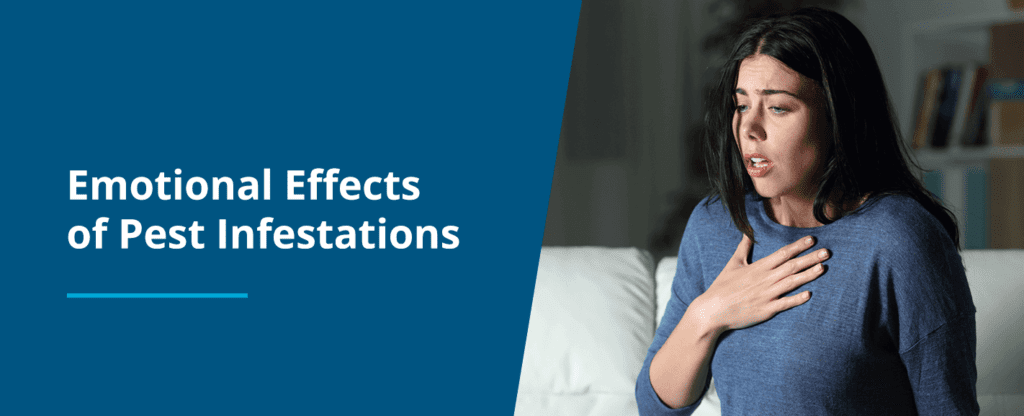
Fear and Emotional Distress
The presence of pests in your home can evoke a range of negative emotions, including dread and disgust, which can severely impact your mental well-being.
Dread
Living in an infested environment can create a constant sense of dread. The anticipation of encounters with pests, the fear of their bite or sting, and the potential health risks they pose can generate a pervasive feeling of impending doom. This overwhelming dread can result in heightened anxiety and stress, significantly impacting your mental health.
Disgust
Pests are often associated with filth and unsanitary conditions, which can trigger feelings of disgust. The sight of pests crawling on surfaces or the discovery of their droppings can lead to immediate repulsion and aversion. The emotional distress caused by these feelings of disgust can be detrimental to your mental well-being, exacerbating anxiety and contributing to a negative perception of your living environment.
Impact on Daily Life
A pest infestation can have a significant impact on your daily life, affecting various aspects of your routine and relationships.
Interference with Work/School
Dealing with a pest infestation can interfere with your ability to focus and perform at work or school. The constant distraction and worry about pests can impede your concentration and productivity. Additionally, the need to address the infestation, such as scheduling Pest Control services or cleaning affected areas, can take up valuable time and energy, further hindering your ability to meet demands and responsibilities.
Relationship Problems
Living in an infested environment can put a strain on your relationships. The stress and emotional toll of dealing with pests can lead to increased tension and conflict with family members or roommates. Disagreements may arise regarding how to handle the situation, further impacting your mental health and undermining the sense of harmony within your home.
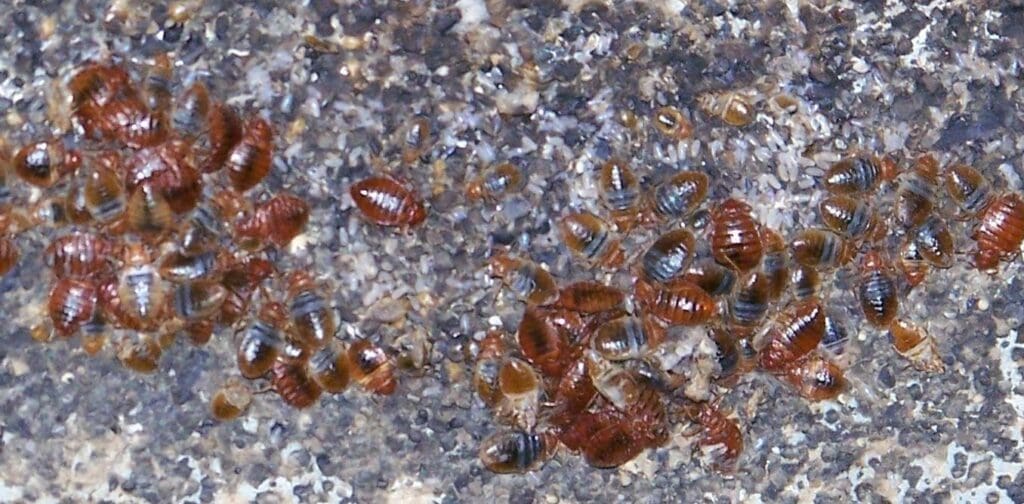
Financial Strain
Pest infestations can also cause financial strain, which can contribute to the negative impact on your mental health.
Cost of Pest Control Services
Seeking professional pest control services can be costly, depending on the extent of the infestation and the type of pests involved. The financial burden of hiring exterminators or purchasing pest control products can add significant stress and anxiety, especially if your budget is already stretched thin. The worry about the expenses associated with pest control can further exacerbate the negative psychological effects of dealing with an infestation.
Property Damage
Pests can cause damage to your property, resulting in additional financial costs. For example, termites can cause structural damage to your home, requiring costly repairs. The realization that your property is being damaged by pests can be distressing and contribute to feelings of helplessness and frustration.
Social Isolation and Stigma
Living in a pest-infested environment can lead to social isolation and a sense of stigma, which can have a profound impact on your mental health.
Embarrassment
The presence of pests can be embarrassing and lead to a sense of shame. The fear of judgment and ridicule from others can cause you to withdraw socially and limit your interactions. The knowledge that your home is infested with pests can create a significant barrier to engaging in social activities, contributing to feelings of isolation and negatively affecting your mental well-being.
Avoidance of Social Interactions
The stigma associated with a pest infestation may cause you to avoid inviting friends or family into your home. The worry about their reaction to the presence of pests can lead to social withdrawal and isolation. By restricting your social interactions, you may miss out on important social support systems, further impacting your mental health.
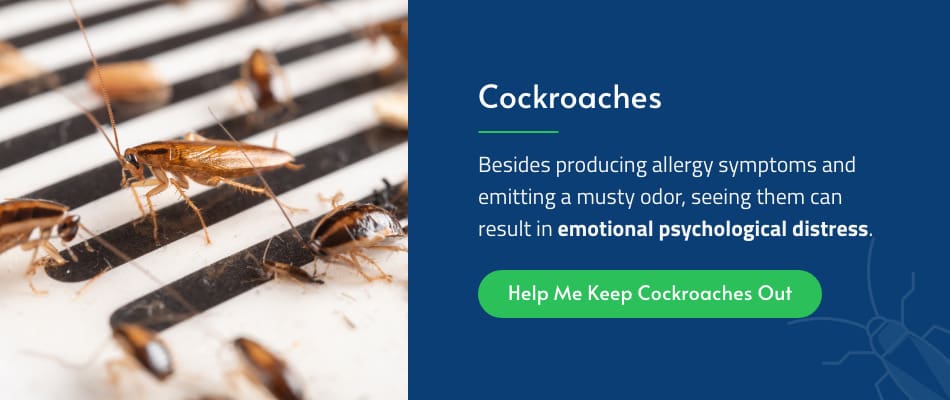
Physical Health Effects
Pest infestations not only affect your mental health but can also have adverse effects on your physical well-being.
Allergies and Respiratory Issues
Pests such as dust mites, cockroaches, and rodents can trigger or exacerbate allergies and respiratory issues. Their droppings, shed skin, and saliva can become airborne and cause allergic reactions, including sneezing, coughing, and wheezing. These physical symptoms can contribute to discomfort and distress, influencing your mental state and overall quality of life.
Skin Irritations
Certain pests, such as bed bugs and fleas, can cause skin irritations and allergic reactions through bites or exposure to their saliva or feces. The constant itching, redness, and discomfort can lead to sleep disturbances and irritability, exacerbating the negative impact on your mental health.
Preventing and Managing Mental Health Impact
Recognizing the impact of pests on your mental health is crucial in taking steps to prevent and manage their effects.
Seeking Professional Help
If you are struggling with the mental health impact of a pest infestation, it is essential to seek professional help. Mental health professionals can provide guidance, support, and therapy to help you cope with the anxiety, depression, and stress associated with the situation. They can assist you in developing healthy coping strategies and provide a safe space to express your feelings and concerns.
Developing Coping Strategies
In addition to seeking professional help, developing your coping strategies can aid in managing the mental health impact of a pest infestation. This can include practicing relaxation techniques such as deep breathing or meditation to reduce anxiety. Engaging in activities that bring you joy and distract you from the stress of the infestation, such as hobbies or spending time outdoors, can also help improve your mental well-being. Creating a support network of friends or family who can provide emotional support and understanding during this challenging time is crucial.
In conclusion, a pest infestation can have a profound impact on your mental health. The anxiety, depression, stress, and other negative psychological effects that arise from dealing with pests can be overwhelming. Sleep disruptions, psychological disorders, feelings of invasion and loss of control, fear and emotional distress, interference with daily life, financial strain, social isolation and stigma, and physical health effects all contribute to the significant toll on your mental well-being. It is essential to recognize these effects and take proactive measures to prevent and manage them. Seeking professional help and developing coping strategies are essential steps in ensuring your mental health remains resilient in the face of a pest infestation.
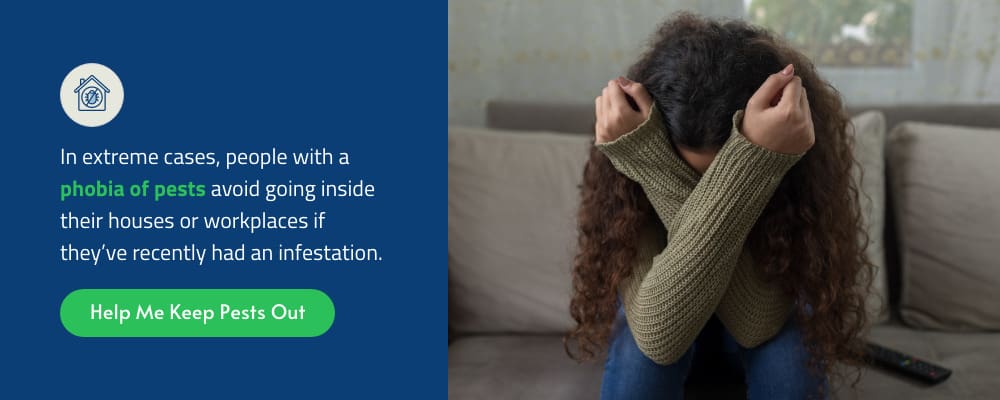

I am Randy, the author behind PestControld.com. Drawing from decades of experience, I aim to provide valuable insights, expert advice, and practical recommendations to help you make informed decisions when assessing viable pest control solutions.